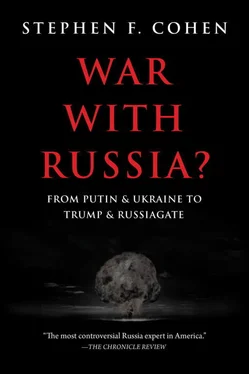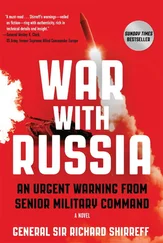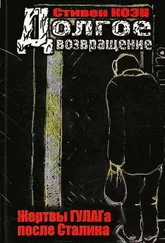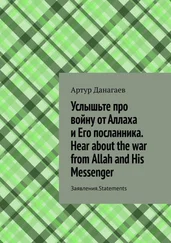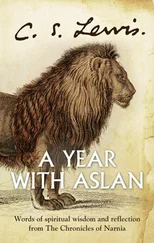As for being a “murderer” of journalists and other “enemies,” the list has grown to scores of Russians who died, at home or abroad, by foul or natural causes—all reflexively attributed to Putin. Our hallowed tradition puts the burden of proof on the accusers. Putin’s accusers have produced none, only assumptions, innuendoes, and mistranslated statements by Putin about the fate of “traitors.” The two cases that firmly established this defamatory practice were those of the investigative journalist Anna Politkovskaya, who was shot to death in Moscow in 2006; and Alexander Litvinenko, a shadowy one-time KGB defector with ties to aggrieved Yeltsin-era oligarchs, who died of radiation poisoning in London, also in 2006.
Not a shred of actual proof points to Putin in either case. The editor of Politkovskaya’s paper, the devoutly independent Novaya Gazeta , still believes her assassination was ordered by Chechen officials, whose human-rights abuses she was investigating. Regarding Litvinenko, despite frenzied media claims and a kangaroo-like “hearing” suggesting that Putin was “probably” responsible, there is still no conclusive proof even as to whether Litvinenko’s poisoning was intentional or accidental. The same paucity of evidence applies to many subsequent cases, notably the shooting of the opposition politician Boris Nemtsov, “in [distant] view of the Kremlin,” in 2015.
About Russian journalists, there is, however, a significant overlooked statistic. According to the American Committee to Protect Journalists, as of 2012, 77 had been murdered—41 during the Yeltsin years, 36 under Putin. By 2018, the total was 82—41 under Yeltsin, the same under Putin. This strongly suggests that the still–partially corrupt post-Soviet economic system, not Yeltsin or Putin personally, led to the killing of so many journalists after 1991, most of them investigative reporters. The former wife of one journalist thought to have been poisoned concludes as much: “Many Western analysts place the responsibility for these crimes on Putin. But the cause is more likely the system of mutual responsibility and the culture of impunity that began to form before Putin, in the late 1990s.” 22
• More recently, there is yet another allegation: Putin is a fascist and white supremacist. The accusation is made mostly, it seems, by people wishing to deflect attention from the role being played by neo-Nazis in US-backed Ukraine. Putin no doubt regards it as a blood slur, and even on the surface it is, to be exceedingly charitable, entirely uninformed. How else to explain Senator Ron Wyden’s solemn warnings, at a hearing on November 1, 2017, about “the current fascist leadership of Russia”? A young scholar recently dismantled a senior Yale professor’s nearly inexplicable propounding of this thesis. 23My own approach is compatible, though different.
Whatever Putin’s failings, the fascist allegation is absurd. Nothing in his statements over nearly 20 years in power are akin to fascism, whose core belief is a cult of blood based on the asserted superiority of one ethnicity over all others. As head of a vast multi-ethnic state—embracing scores of diverse groups with a broad range of skin colors—such utterances or related acts by Putin would be inconceivable, if not political suicide. This is why he endlessly appeals for harmony in “our entire multi-ethnic nation” with its “multi-ethnic culture,” as he did once again in his re-inauguration speech in 2018. 24
Russia has, of course, fascist-white supremacist thinkers and activists, though many have been imprisoned. But a mass fascist movement is scarcely feasible in a country where so many millions died in the war against Nazi Germany, a war that directly affected Putin and clearly left a formative mark on him. Though he was born after the war, his mother and father barely survived near-fatal wounds and disease, his older brother died in the long German siege of Leningrad, and several of his uncles perished. Only people who never endured such an experience, or are unable to imagine it, can conjure up a fascist Putin.
There is another, easily understood, indicative fact. Not a trace of anti-Semitism is evident in Putin. Little noted here but widely reported both in Russia and in Israel, life for Russian Jews is better under Putin than it has ever been in that country’s long history. 25
• Finally, at least for now, there is the ramifying demonization allegation that, as a foreign-policy leader, Putin has been exceedingly “aggressive” abroad and his behavior has been the sole cause of the new cold war. 26At best, this is an “in-the-eye-of-the-beholder” assertion, and half-blind. At worst, it justifies what even a German foreign minister characterized as the West’s “war-mongering” against Russia. 27
In the three cases widely given as examples of Putin’s “aggression,” the evidence, long cited by myself and others, points to US-led instigations, primarily in the process of expanding the NATO military alliance since the late 1990s from Germany to Russia’s borders today. The proxy US-Russian war in Georgia in 2008 was initiated by the US-backed president of that country, who had been encouraged to aspire to NATO membership. The 2014 crisis and subsequent proxy war in Ukraine resulted from the longstanding effort to bring that country, despite large regions’ shared civilization with Russia, into NATO. And Putin’s 2015 military intervention in Syria was done on a valid premise: either it would be Syrian President Bashar al-Assad in Damascus or the terrorist Islamic State—and on President Barack Obama’s refusal to join Russia in an anti-ISIS alliance. As a result of this history, Putin is often seen in Russia as a belatedly reactive leader abroad, as a not sufficiently “aggressive” one.
Embedded in the “aggressive Putin” axiom are two others. One is that Putin is a neo-Soviet leader who seeks to restore the Soviet Union at the expense of Russia’s neighbors. He is obsessively misquoted as having said, in 2005, “The collapse of the Soviet Union was the greatest geopolitical catastrophe of the twentieth century,” apparently ranking it above two World Wars. What he actually said was “a major geopolitical catastrophe of the twentieth century,” as it was for most Russians.
Though often critical of the Soviet system and its two formative leaders, Lenin and Stalin, Putin, like most of his generation, naturally remains in part a Soviet person. But what he said in 2010 reflects his real perspective and that of very many other Russians: “Anyone who does not regret the break-up of the Soviet Union has no heart. Anyone who wants its rebirth in its previous form has no head.” 28, 29
The other fallacious sub-axiom is that Putin has always been “anti-Western,” specifically “anti-American,” has “always viewed the United States” with “smoldering suspicions.”—so much that eventually he set into motion a “Plot Against America.” 30, 31A simple reading of his years in power tells us otherwise. A Westernized Russian, Putin came to the presidency in 2000 in the still prevailing tradition of Gorbachev and Yeltsin—in hope of a “strategic friendship and partnership” with the United States.
How else to explain Putin’s abundant assistant to US forces fighting in Afghanistan after 9/11 and continued facilitation of supplying American and NATO troops there? Or his backing of harsh sanctions against Iran’s nuclear ambitions and refusal to sell Tehran a highly effective air-defense system? Or the information his intelligence services shared with Washington that if heeded could have prevented the Boston Marathon bombings in April 2012?
Or, until he finally concluded that Russia would never be treated as an equal and that NATO had encroached too close, Putin was a full partner in the US-European clubs of major world leaders? Indeed, as late as May 2018, contrary to Russiagate allegations, he still hoped, as he had from the beginning, to rebuild Russia partly through economic partnerships with the West: “To attract capital from friendly companies and countries, we need good relations with Europe and with the whole world, including the United States.” 32
Читать дальше
